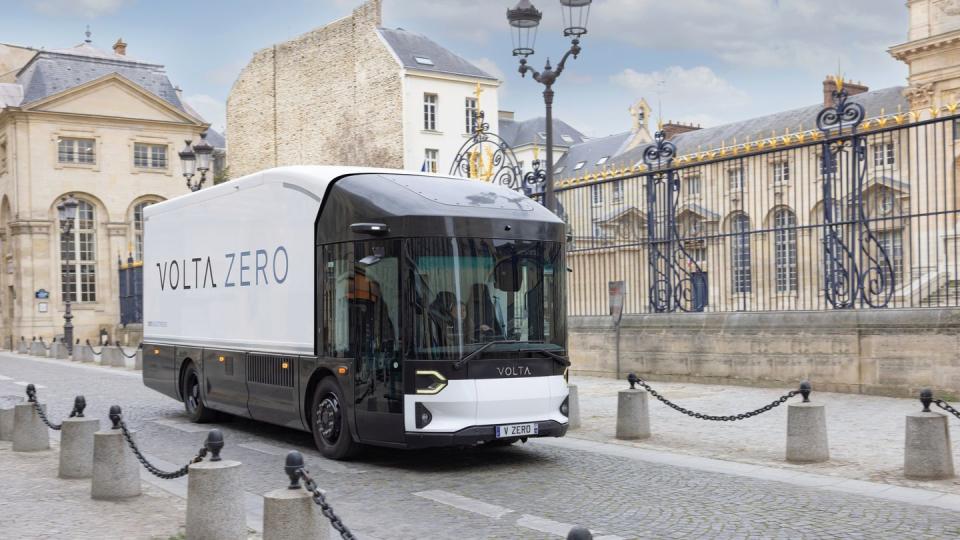A Series of Events Pushed Volta to File for Bankruptcy

Volta Trucks files for bankruptcy in the wake of the August 2023 bankruptcy of its battery supplier.
The battery maker, Proterra, had faced a number of challenges in recent years including in its bus unit, that had contributed to its declining financial position.
The EV truck startup had begun production of its delivery model earlier this year, with the first batch of trucks intended for a demo fleet.
Swedish startup Volta Trucks, which has been developing electric delivery vehicles, has filed for bankruptcy in Sweden, with the company's foreign units expected to do the same in England and elsewhere.
Volta Trucks, founded only in 2019, had started series production in April of this year in Steyr, Austria, after a successful round of testing in a number of countries of its 16-tonne Volta Zero, which was designed to offer a range of 125 miles.
The truck, designed for urban logistics, featured a central seating position giving the driver 220 degrees of visibility. The first series production units, however, were destined for the company's Driving Experience Program, as it sought to increase its number of fleet customers.
Volta had also intended to offer its models to businesses and fleets under the Truck as a Service (TaaS) scheme, combining service and maintenance at its sites in Europe.
The trigger for bankruptcy proceedings in Sweden and elsewhere was linked to the bankruptcy filing by its US-based battery supplier.
"The recent news that our battery supplier (Proterra) has filed for Chapter 11 Bankruptcy, has had a significant impact on our manufacturing plans, reducing the volume of vehicles that we had forecast to produce," the company said in a statement.
"The uncertainty with our battery supplier also negatively affected our ability to raise sufficient capital in an already challenging capital-raising environment for electric vehicle players."
Battery maker Proterra, founded in 2004, had filed for bankruptcy during the first week of August of this year, setting into motion this chain of events. The bankruptcy filing has been linked to the company's rapid expansion that saw it branch out into charging systems and buses.
Coupled with a slowdown of the economy during 2022, a surge in the costs of raw materials, and a shrinking influx of capital, Proterra was caught in between too many projects at once while not generating enough revenue.
Proterra's bus unit, in particular, has been singled out as one of the main generators of drag on its business model, which saw Proterra develop a variety of different buses for a number of cities at a high cost to itself, but was unable to reap the revenue of these contracts in time.
“While our best-in-class EV and battery technologies have set an industry standard, we have faced various market and macroeconomic headwinds, that have impacted our ability to efficiently scale all of our opportunities simultaneously," Gareth Joyce, Proterra CEO, said in early August.
Proterra itself is continuing to operate under bankruptcy proceedings, but in the meantime the fallout has already had an effect on its customers, for which it was acting as a supplier.
Volta's bankruptcy is the latest in a string of troubles experienced by commercial EV startups, which had touted customized, innovative vehicle bodies aimed at last-mile delivery fleets, upon which a great many hopes were once pinned by Silicon Valley investors.
If there are two common denominators to a number of recent EV startup flameouts, one is perhaps the long gestation times of their EV models, which were designed in one economic environment and began production in a vastly different economic climate. The other common denominator is the fact that older automakers, derisively called "legacy automakers" in Silicon Valley, had managed to beat many of these startups to production, including GM's BrightDrop, which kicked off assembly in late 2021.
The one major startup success in this niche so far has been Rivian, which itself had been backed by Ford and VW early on, and had secured a substantial contract from Amazon. But even Rivian has faced headwinds over the past two years.
Will many commercial EV startups face the same fate once established automakers begin to offer electric trucks meant for businesses? Let us know what you think.

 Yahoo Autos
Yahoo Autos 